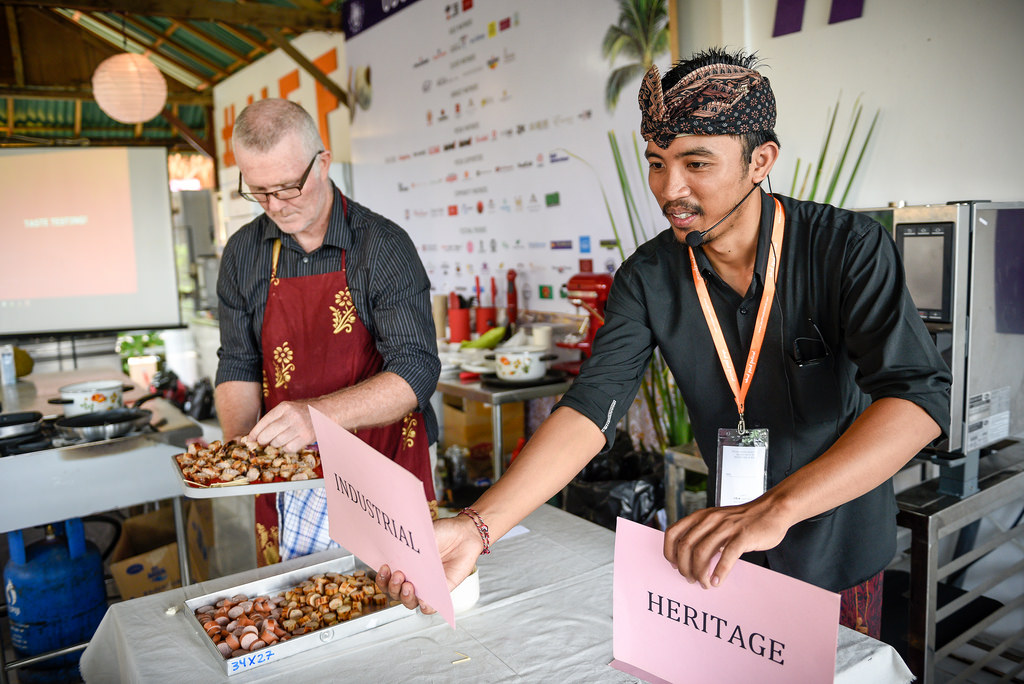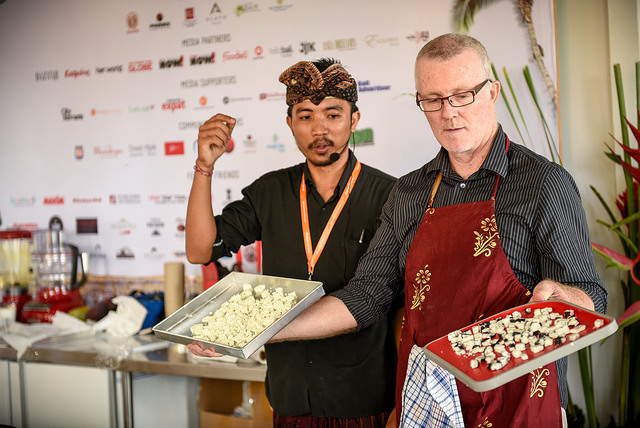Our UFF18 theme ‘Generasi Inovasi’ celebrates innovation across the entire spectrum of Indonesia’s culinary industry. In this new series we speak to some of the nation’s most outstanding innovators to discover the exciting ideas they’re bringing to the table. First up is Tri Sutrisna, Manager of Balinese farming cooperative Wanaprasta, and one of Southeast Asia’s leading charcuterie and cheese specialists.

Tri, what does ‘innovation’ mean to you?
Innovation represents new thinking. New thinking brings new horizons, improved systems, and better or different results. Working with Wanaprasta has meant that I have been in the frontline of merging old and new thinking to create positive outcomes. I feel privileged to be able to focus exclusively on innovative management as the core of my professional development. Six years of being given problems to address, and discovering that solving problems creatively is the only way forward, has hard-wired my brain to look at everything inquisitively. So innovation, or rather, the tools to innovate, mean everything to me.
What do you think have been the most innovative agricultural developments in Bali in recent times?
The most innovative areas of development in Bali in recent times have almost certainly been based on innovations in value-adding. This has been driven by a need for Balinese farmers to survive cost pressures wrought by intensive hotel and villa development on their small island. Participating in the development of Balinese heritage varieties has been crucial. Rice and pork has seen impressive developments. At Wanaprasta we played a pivotal role in the development of the heritage Bali Bangkal Hitam Babi (pig).
Innovation is more like a treadmill, not a stationary map point. It needs to be ongoing, and it needs to open those new horizons.
But once evolved it doesn’t stop there. Innovation is more like a treadmill, not a stationary map point. It needs to be ongoing, and it needs to open those new horizons. This is why we have been developing a mango-fed heritage pig. Our focus is to create space in world charcuterie for things that Southeast Asians do particularly well. Up to now that’s never been done. You see… a new horizon. We now represent a unique Southeast Asian approach to meat preparation. Mango-fed animals creating uniquely flavored charcuterie. Nut-fed European charcuterie finally has some competition.

What do you think is the most important food issue for the current generation, and how could this be overcome through innovation?
In Bali, an international destination, innovation often represents what is happening internationally as much as locally. But from a local Balinese perspective, developments in Bali’s agricultural scene have been driven by a pressure to supply a variety of world class agricultural products in an environment under pressure from cheap imports from Java. With the rural cost of living in Bali much higher than Java, a direct result of tourism pressures, this continues to create a major problem for Balinese agriculture.
The most innovative agricultural developments in Bali are generally a direct response to these pressures. The irony is that it’s the rural vistas of Bali, the coordinated and regimented rice terraces, that are often used to attract foreign visitors. But these are under extreme pressure as land values make the building of a villa a better proposition than farming. Therefore the single most important food issue in Bali is establishing a better return for farmers generally. Raising the value of farmers and farming.
What was the most innovative dish you’ve tried recently?
I had a beautiful meal at Locavore two weeks ago. It was a barramundi dish, and something I found very innovative was that they used fermented paprika sauce on top of it.
What are you most looking forward to at UFF18?
I looking forward to bringing new thinking to the Festival next year. New thinking in how to look at food. The important thing is bringing a new concept in balancing food production with environmental sustainability.